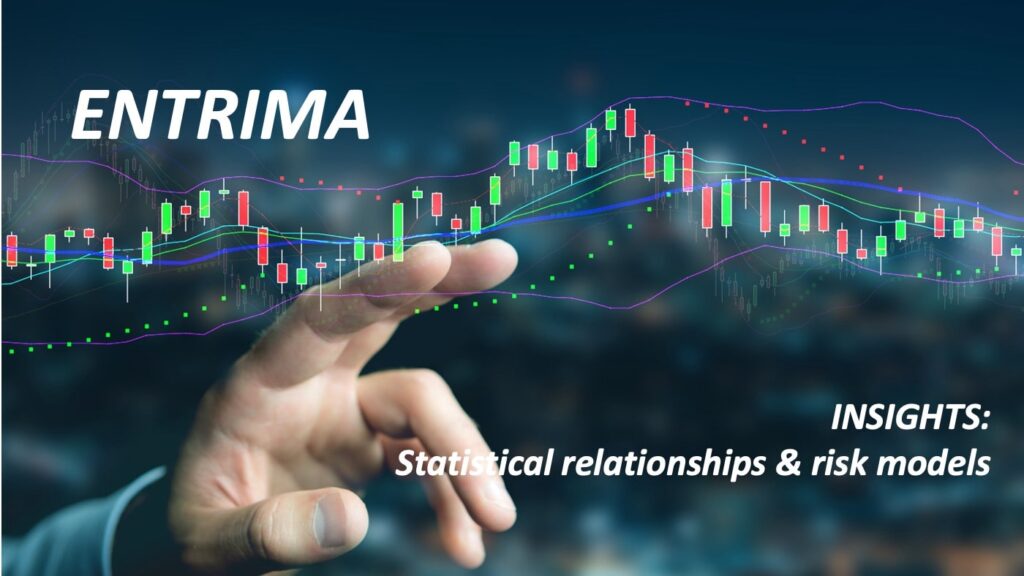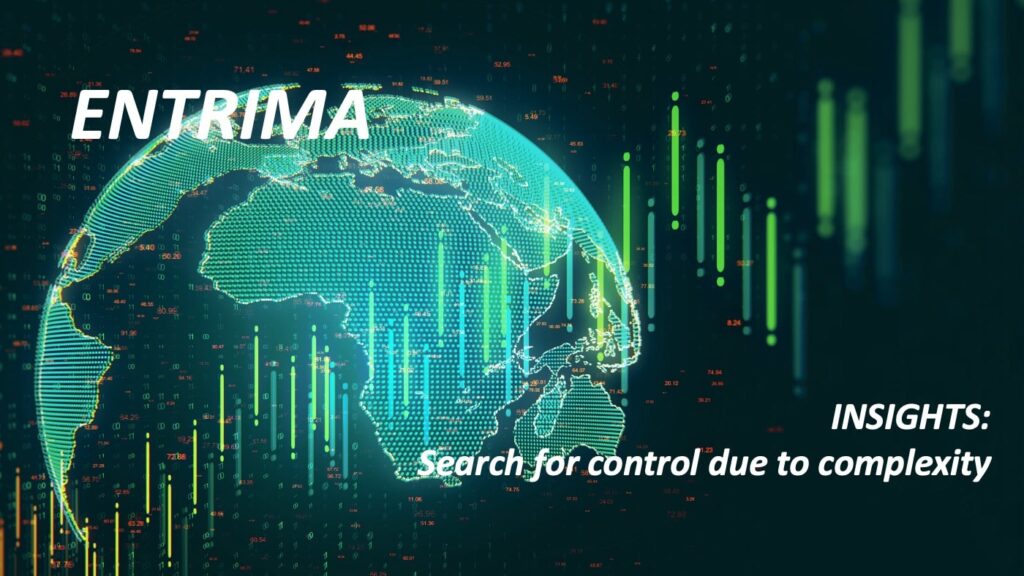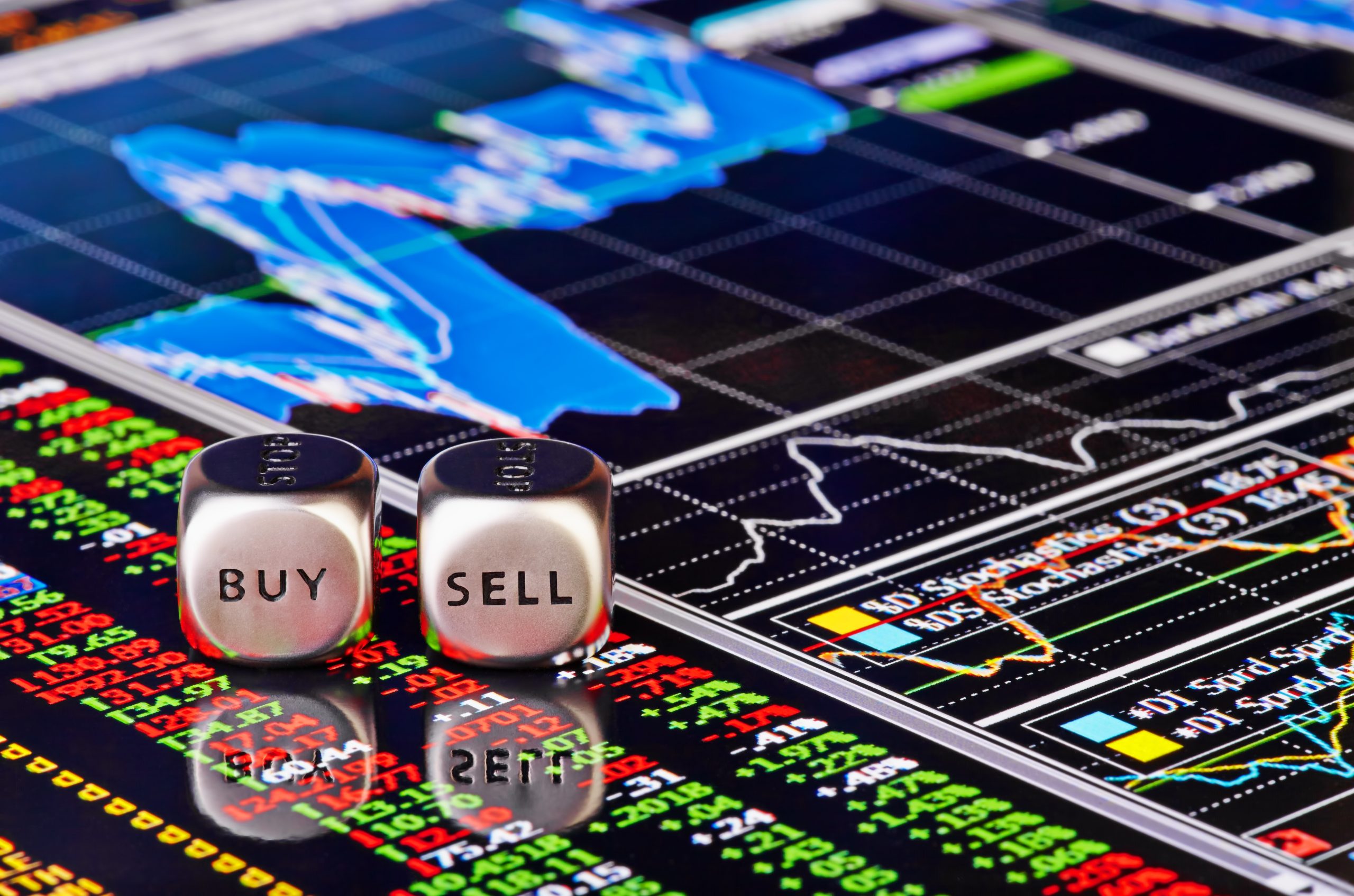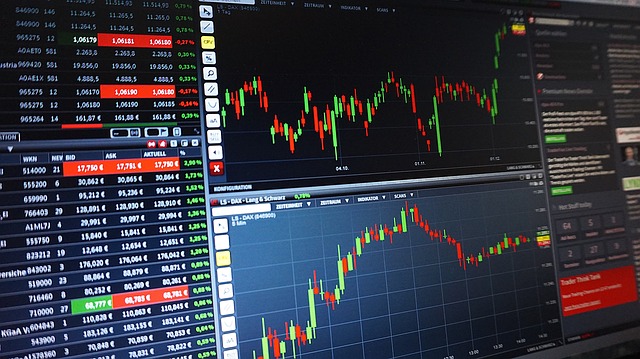
Blended-learning
To thrive in complex social systems, like the commodity and energy markets, one has to be able to identify and grasp opportunities while coping with uncertainty. Dealing with complexity requires an understanding of the multifaceted interactions and dynamics that influence these systems. Complex social systems like the traded markets can only be understood by having […]

Tailored training programmes provided in-house
To thrive in complex social systems, like the commodity and energy markets, one has to be able to identify and grasp opportunities while coping with uncertainty. Coping with complexity requires an understanding of the multifaceted interactions and dynamics that influence these systems. Complex social systems like the traded markets can only be understood by having […]

Bespoke workshops for in-company delivery
In case of learning, a public training course is one of the options for an individual. However, this is not cost-effective for groups, especially when the number become significant. Furthermore, public courses are based on a programme set by the learning service provider. Therefore, as an alternative, educational services are specifically developed for a dedicated […]

Decision-making, data & conduct
Politicians, board members and doctors, but also traders, are decision-makers. They have to choose, ongoing, even while facing conflicts of interest and dilemmas. This requires that one dares to choose. In its turn, making a decision requires analysis, including the comparing and weighing of alternatives. Besides, there is a difference between wicked and tame problems. […]

Culture as part of risk and compliance
Trading requires focused attention on effective risk management and compliance. Consequently, risk and compliance culture has become part of corporate culture. Honest reporting of mistakes, accidents and losses (in other words: negative surprises) is a crucial pillar when the idea is to learn from the past. It also requires specific reporting values. However, the human […]

The EU Regulation REMIT updated
REMIT-2 In 2024 the European Union Regulation on wholesale Energy Market Integrity and Transparency (REMIT) has been updated leading to the REMIT-2 package. This update was needed, amongst others, due to new trading practices, such as algorithmic trading, as well as due to practical developments, including changed market conditions or structures. In the course of […]

Statistical relationships & risk models
The Challenge of Probability Distribution in Risk Quantification Lots of risk quantification approaches and models assume a normal distribution. However, in practice this may not hold, certainly not in particular markets. In the equity markets, in reality, a stock index falling 15% or more on one day is rare, but at least it has happened. […]

Responsibility & Leadership
The Evolution of Responsibility and Accountability Rather common questions nowadays are: Who is responsible within the firm? Which function can be held accountable? Actually, it is best to make everyone responsible. It should be part of a professional’s attitude. Hence, companies have set a framework for it. This way, one can create responsibility at every […]

Search for control due to complexity
The Impact of Globalisation on Control and Individualism Globalisation has led to complexification. No individual can control and loses orientation as a consequence. To cope with this situation, individuals have to minimise themselves and limit to their individualism to survive. This leads to increased individualism. Illusion of Control and the Reality of Anxiety Basically, we […]

Broker Algorithms
Brokers also perform algorithmic trading or provide such functionalities to their clients. Some of them have in-company development departments, whereas others make use of vendors as third party technology firms. Broker-dealers & interdealer brokers Broker-dealers trade on their own account (i.e. ‘company account’), not on behalf of clients. Their ‘internalisers’ are heavily dependent on sophisticated […]

Gas Swaps
Analogous to any other commodity swap, there are gas swaps that settle physically (delivery) or financially (in cash). The processes how these oil and gas instruments are applied are also mostly similar. However, one important different characteristic between oil and gas is that both crude and refinery products are usually delivered at a certain moment […]

Commodity & Energy Exchanges
Commodity and energy trading either takes place bilaterally, in the over-the-counter (OTC) markets, or on a trading venue, like an exchange. Globally, there are quite some of these organised market places, facilitating transacting between buyers and sellers. The Multi-Commodity Exchange (MCX) of India concerns one of many commodity and energy exchanges in Asia. In Japan, […]

Algorithmic Trading
For many investors and traders in the capital markets, both retail and institutional, as well as for wholesale commodity and energy market participants, algorithms play a significant role in the deal-making process. While in the financial markets investor orders are generally routed and executed through broker algorithms of various types, the ability to use routing […]

Swaptions
The characteristics of derivative contracts, such as forwards, futures, options and swaps, can also be combined to form a new financial instrument. A swaption agreement is an example of such a tools. A swaption can be considered an option on a swap, and is therefore a derivative of a derivative. A swaption is a combination […]

Transaction flow
When a deal has been made, various steps have to be taken. This entire process, from order initiation to settlement, may be called the ‘transaction flow’. It consists of the following building blocks: Negotiation process (in case of bilateral deal-making) / order initiation (in case of a trading system) (front office activity); Deal-making, leading to […]

Trading is decision-making
Trading is an activity whereby orders are executed; it involves buying and selling. A trader is the person who negotiates and/or submits orders to transact. Hence, a trader closes deals. Trading concerns decision-making in the sense that each buying or selling transaction starts with analysis and ends with a decision. Each decision-making process ends up […]

Trade surveillance systems
Market integrity requires fair and orderly behaviour. Specific software may offer a tool that allows market participants to contribute to a fair and orderly market. Market surveillance software supports the prevention and detection of market abuse. Key benefits of market monitoring software are to detect abusive practices, including insider trading and market manipulation, to visualise […]

Indicators of manipulative behaviour
For the purpose of performing market monitoring or trade surveillance one is recommended to consider particular indicators. These indicators should be considered irrespective of whether monitoring or surveillance is performed manually or automatically. In other words, both human beings and detection systems are adviced to consider indicators. If an indicator applies to an act, it […]

Trading mandates & limit structures
To control a trading function, it is important to allocate mandates to the business and its professionals. In other words, to manage traders, organisations provide them with authorisation. Next, firms govern their employees by the implementation of limit structures. A mandate concerns an official order or commission to do something; it is the authority to […]

Mark-to-market valuation vs. fair value accounting
Companies and their business, control and support functions require price information in order to start certain periodic procedures and to generate various reports. The most reliable ingredients may be up-to-date prices, not historical costs. Valuating a position mark-to-market concerns accounting against actual market prices. Hence, it must be updated over-and-over. However, when products are hardly […]

Trade compliance
A company’s organisational structure includes various functions, often classified as business functions, control functions and support functions. Each of those can include multiple sub-classes. Risk management and audit are common examples of control functions. The same applies for compliance and surveillance. In small companies, various (or all) control functions may be combined and managed by […]

Markets are complex social systems
People love certainty and they care for security but, usually, they do not get it. Individuals may be promised these aspects, and/or they may be convinced to have it, but it has actually only been assumed.

Commodity Exchange Act – Singapore
In Singapore, to regulate markets, various legislative packages apply. This includes the Commodity Trading Act (CTA). CTA is specifically of relevance for commodity trading. The Commodity Trading Act (CTA) was further amended in 2008, and regulatory oversight of commodity futures was transferred from International Enterprise Singapore (IE Singapore) to the Monetary Authority of Singapore (MAS). […]

Compliance – The Organisational Structure
A company’s organisational structure includes various functions, often classified as business functions, control functions and support functions. Each of those can include multiple sub-classes. Risk management and audit are common examples of control functions. The same applies for compliance and surveillance. In small companies, various (or all) control functions may be combined and managed by […]

Market Abuse Regulations – US Versus EU
In the United States, the following three pieces of regulation contain anti-market abuse provisions that are relevant to commodity or energy markets: the Commodity Exchange Act (CEA) of 1936 the Energy Policy Act (EPA) of 2005, and the Energy Independence and Security Act (EISA) of 2007. Besides, the anti-abuse provisions of the the Commodity Exchange […]

Option Spreads – Bull & Bear
Analogous to a futures spread, an option spread consists of two legs. Each leg concerns an option.

OTC Deal-making
Over-the-counter markets are characterised by a variety of aspects, activities and processes. This includes flexibility concerning the terms and conditions in the negotiation process, choice of preferred broker, discretion with order execution and counterparty risk management.

Inside information in the electricity markets
In the world of electricity, physical capacity may be unavailable. It could be the result of scheduled maintenance or it may concern unplanned unavailability; the latter, typically, being an ad hoc event. Irrespective of the type of maintenance, it may concern information which impacts the market. In order to create a level playing field for […]

Cross-commodity manipulation
Market manipulation is prohibited. Therefore, it has to be prevented and detected. For that matter it is crucial to know what it concerns. Market manipulation can be committed in many ways. There are various schemes. Cross-market manipulation concerns one type of scheme, although it has many forms. Basically, cross-market manipulation concerns trading in one market […]

Morality
Both rationale and emotions relate to the decision-making process of human beings. This automatically implies that both ratio and feelings impact our actions or behaviour. Psychological aspects, including mental traps, can impact a professional’s performance, as well as his attitude. Evil could be described as the abuse of free will. There are various types of […]

Model-based Strategies
Statistical arbitrage (or StatArb) can be seen as a model-based investment (or speculation) process, by constructing simultaneously long and short positions of different assets

Pair Trading & StatArb
Price-wise assets can be related to each other. This applies to financial assets, such as corporate shares or bonds, but also to physical assets, like commodities. Agricultural commodities are, for instance, related to energy for a variety of reasons.

The Weather Markets
Weather conditions affect all sorts of things. It impacts what people do, how human beings dress, where we go and what we consume. The weather also impacts the business.

Weather & The Global Financial System
It is undeniable that firms’ and investors’ understanding of the financial consequences associated with climate change will strengthen.

Weather Risk – Climate Change
Climate and weather are different concepts, but relate to each other. Different kinds of climate bring along different weather patterns.

Characteristics Of OTC Markets
Over-the-counter markets are characterised by a variety of aspects, activities and processes.

Bilateral Deals
Large commodity consumers typically contract their supplies directly at the source. They enter into bilateral agreements with producers.

Freight Rates
The price for shipping cargo is called the ‘freight rate’. Hence, the tariff at which a vessel is chartered is referred to as the so-called freight rate.

Freight indices – The Baltic Exchange
The Baltic Exchange develops and maintains various indices for freight.

Algorithmic trading compliance
In the traded markets, participants apply algorithms to perform so-called ‘algorithmic trading’. A main concern with the application of algorithms concerns the possibility of misleading price signals or the possibility of disorderly trading. In general, market abuse must be prevented. More particularly, market manipulation must be prevented. And when committed, it must be detected and […]

Freight – Incoterms
International Commercial Terms (in brief: ‘Incoterms’) are a series of pre-defined commercial terms published by the International Chamber of Commerce relating to international commercial law.

Spoofing & Layering
Both ‘spoofing’ and ‘layering’ are strategies to manipulate a market. Both schemes, techniques or strategies are prohibited. Basically, the underlying technique involves the placing of orders without the intention to have these orders executed. That, in itself, is not allowed. After all, any order should be submitted with the intention to have it executed. Spoofing […]

Ethical Blindness
When considering conduct, it is important to note that ethical blindness could appear. Misconduct is not just the consequence of people who are acting willfully. A person is not perse fully aware of the consequences of his actions. Humans simply do not have access to all information, nor do people process all available information, and […]

Decision-making
Many economic theories are based on ‘homo economicus’, the rational human being. Regrettably, this assumption has caused a great deal of trouble. Humans, including investors, consumers and traders, seem to base a lot of their decisions on irrational considerations. It seems that often behaviour is driven significantly by context, as opposed to content. Cognitive biases, […]

Metal markets & trading
In the metal markets, physical players come together to enter into supply contracts.

Physical Withholding
Physical withholding concerns a strategy to manipulate markets. Therefore, physical withholding is prohibited. In general, price setting mechanisms should work correctly. More specifically, the price of a commodity or commodity contract reflects scarcity, among many other factors. One can expect that in certain situations a scarcity premium will be built into prices, and prices will […]

Leadership
Leadership requires mental management. In other words, leadership requires professionals to manage their mental status thoroughly. In people’s lives, there are internal and external forces constantly in action. An external force concerns the environment, irrespective whether that concerns our private lives or work. An internal force concerns the collection of mental forces represented by beliefs, […]

Metals
The Earth is actually one great collection of commodities, but, because of excessive use, supply of raw materials may run out one day.

Agro derivatives markets
Next to supply contracts, market participants enter into derivatives contracts.

Agricultural commodities
A soft commodity is a product that can be grown, while a hard commodity concerns a natural resource which is mined.

Price volatility
If prices would not move, there would be no price risk. In markets where the price level is regulated and, consequently, fixed for the remainder of the year, price volatility does not exist.

Radical uncertainty
Risk is not a synonym for uncertainty, because risk can be quantified, whereas uncertainty cannot. Risk quantification is based on a formula including ‘probability’ and ‘effect’.

Open interest
The moment a futures contract, an option contract or a swap agreement is entered into by buyer and seller, a position is opened.

Exchange of futures for physicals
An exchange of futures for physicals (EFP) is a transaction process allowed by an exchange to enable market participants to manage their market risk with direct reference to the price of an underlying physical transaction.

Settlement
In the commodity business, settlement is one of the main processes in deal-making. Settlement is the actual process that provides the final completion of a transaction; the unwinding of the transaction.

Margining
In order to guarantee the duties of a clearing house, market participants need to arrange for a guarantee for each position, for instance, being commodity (derivatives) contract.

Clearing
In the field of trading operations, clearing of transactions is a very important process. Clearing is often considered guaranteeing the settlement of a contract between two parties, like a form of insurance.

Counterparty risk & credit support
Counterparty risk consists of delivery risk for the buyer and credit risk for the seller. These risks have to be managed by those parties who are involved with it.

Trade & risk management solutions
Commodity trading can be considered a business function. As with any business, it has to be checked and verified by control functions and it has to be given assistance by support functions.

Trade Operations
Typical commodity & energy trade operations are quite diverse.

Cost of Carry
A rational market participant should be indifferent to buy an asset now or in time. Pricing of products should be accordingly, including commodities and financial instruments.

Options – Tools to speculate or hedge
Options can be used to create an exposure (and, thus, to speculate), but, alternatively, they can be applied as an instrument to hedge an exposure.

Commodification
‘Commoditisation’, or ‘commodification’, concerns a process of standardisation or creating fungibility.

The supply chain
The supply chain, or the value chain, concerns the system of organisations, people, technology, activities, information and resources …

Classification of commodities
Commodities themselves can also be classified. As always, classifications can be made in various ways.

Classification of assets
In order to understand the place of the commodity markets, one needs to consider the bigger picture.








